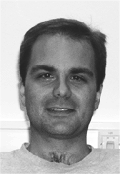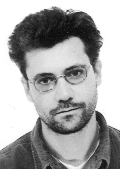
J. Christopher Beck received a PhD in Artificial Intelligence in 1999 from the University of Toronto under the supervision of Mark S. Fox. From 1994 to 1999 he was the project manager of the Intelligent Scheduling Research Group at the Enterprise Integration Laboratory at University of Toronto. The focus of his research was measurements of problem structure as a basis for scheduling heuristics within a constraint-based scheduling framework. From 1999 until 2002 he was a software developer and Senior Scientist on the Scheduler team at ILOG, SA in Gentilly, France. As of June, 2002, he moved to the position of Staff Scientist at the Cork Constraint Computation Centre, University College Cork. His research interests focus on problem structure, hybrid algorithms, search in constraint-directed scheduling, and in the extension of constraint modeling and solving capabilities to incorporate aspects of real-world scheduling such as uncertainty, dynamic arrival of activities, and robustness.
